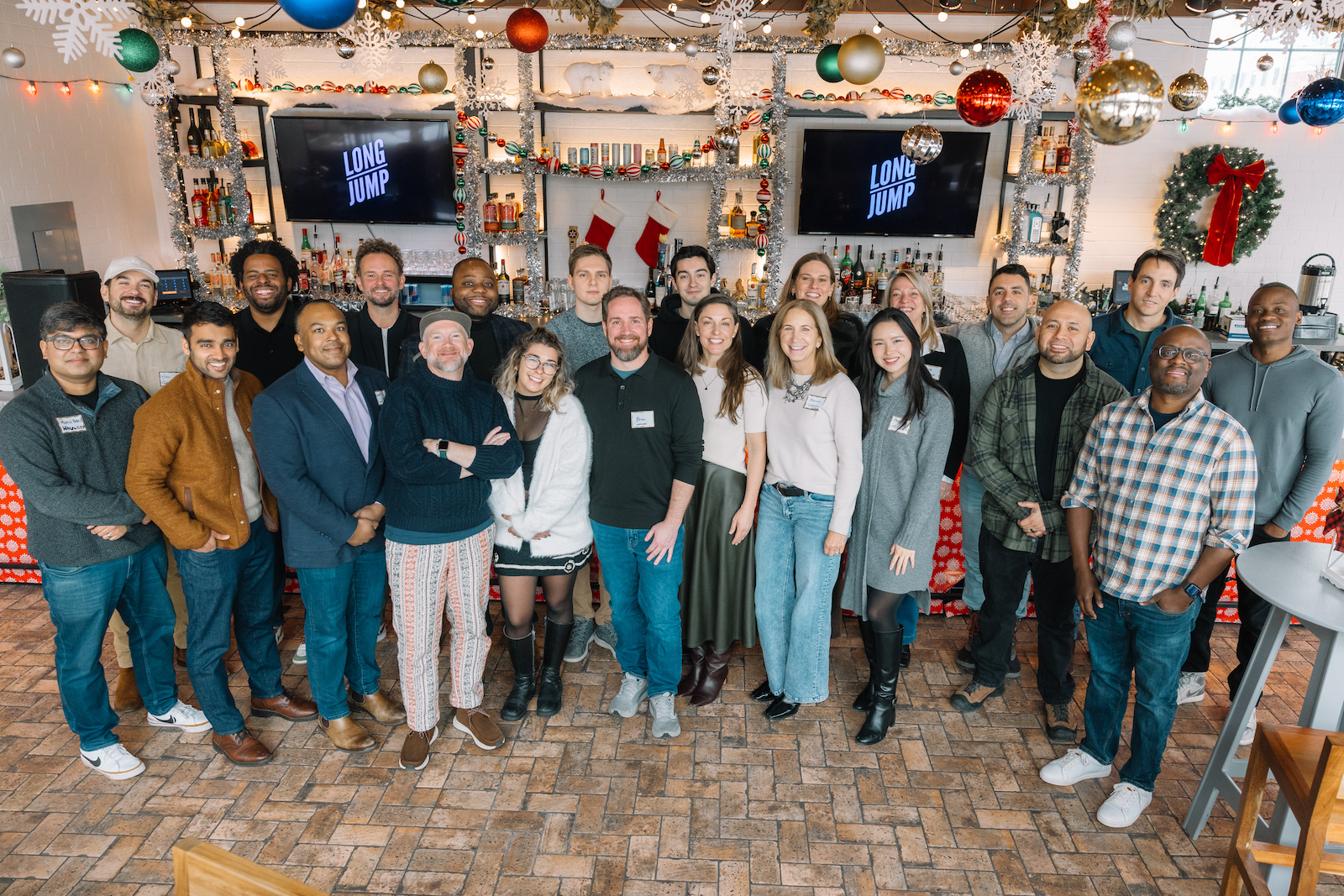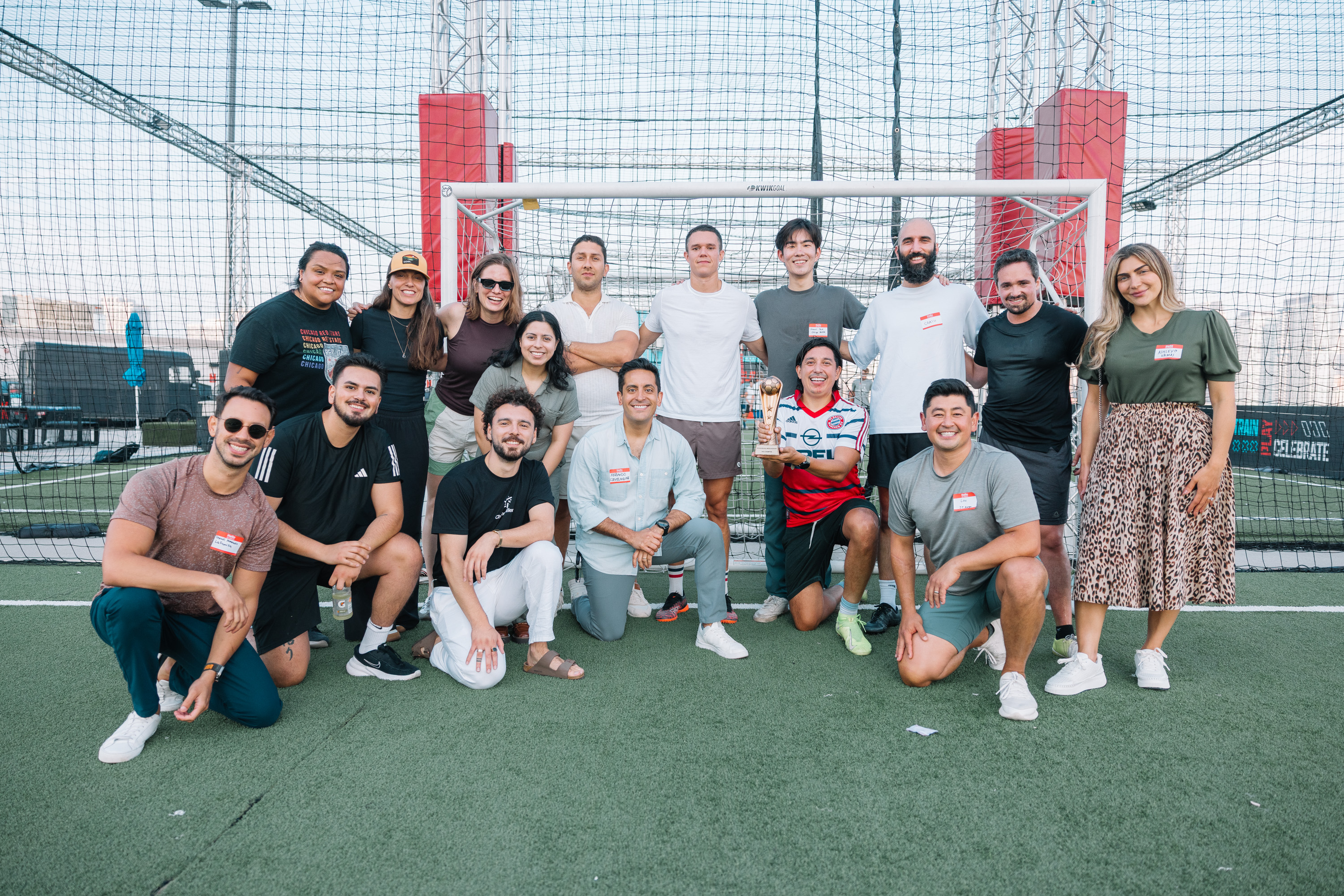Don't Miss a Step. Subscribe to our Newsletter
Earlier this summer, while doing some mindless scrolling, I noticed a tweet comparing breaking into the Chicago startup ecosystem to enduring the city’s winter: rough and behind closed doors. I’ve been thinking about this for months now - working in Chicago’s startup scene for the better half of a decade, it personally feels like we’re back to being overwhelmed with ways to plug in, my email inbox flooded with happy hours, panels, pitch competitions, and summits. But are these meaningful ways to connect and if so, how do we leverage them to develop mutually-beneficial relationships?
In April, I met Anj Fayemi, CEO & Co-Founder of Rivet. Anj was fresh off the plane from Boston (literally, he had texted me a picture from the airport), a new transplant to Chicago with his co-founders, Simran Pabla and Nafim Rahman. Anj started Rivet, an AI-powered platform that helps artists and their managers operate more like small businesses, at the Massachusetts Institute of Technology in 2020. Later bringing on Simran and Nafim, the team operated for some time in Boston, including participating in a Techstars cohort there, before raising their pre-seed round. They knew they had to move to another city with a deeper creative economy, considering Atlanta, Los Angeles, New York City, and Chicago. Inspired by the success of Chicago-born startups focused on music and entertainment, including Cameo, Trala, Songsleuth, and Songfinch, and boosted by a Drive Capital investment, they packed their bags for the Midwest.
In just six months, the Rivet team has built a meaningful presence in Chicago’s startup community, including features in Chicago Inno and recognition in the 2023 1871 Momentum Awards as winner of the Industry Disrupter category. Impressed with how quickly the Rivet team has made a home for themselves in the “wintery” ecosystem of Chicago, I reached out to Anj to get his advice for transplants, first-time founders, or those generally feeling a little isolated from the startup scene.
Build Out Your Initial Network
For Anj, participating in startup programming at MIT and in Boston (Techstars, AllRaise, etc.) equipped him with a network of founders and mentors willing to share their thoughts on who would be most helpful to pay attention to in Chicago, whether through social media or attending events they may be speaking at. Certain names, like Gale Wilkinson of VITALIZE, came up over and over and Anj started to write out a list (literally) of people he knew he had to meet as Chicago became more of a reality for their team.
“Helen Adeosun, CEO of CareAcademy, gave me the advice that I should always be asking if there are any other people, whether they are Techstars founders, Black founders, founders in my industry, or programs I should know. Understand who are the superconnectors in your city or industry.” We talked about people like Landon Campbell (Drive Capital), Claude Cimeus (P33), and Abin Kuriakose (World Business Chicago), with Anj elaborating, “If you meet them, they will introduce you to the right people. Let them know what you are working on and extend that to the next layer of everyone you meet - here’s who we want to meet with and what we want to accomplish.”
Making the Ask
Anj’s list included some heavy hitters and some of these individuals were more accessible than others. He was laser-focused on pitching Gale and VITALIZE, something any founder can apply to do on their website. Declined for investment by VITALIZE, but with deep admiration for Gale’s work, he put her on Rivet’s monthly updates and let her know they were moving to Chicago. This led to an invitation to a small dinner that VITALIZE was curating. He made strong initial connections at that event and emailed everyone following to set up another time to chat. “This led to eight solid, new Chicago contacts for me,” says Anj.
Ready to Take The leAp?
Community
Contact
© 2025 | Site Built By PNW




.png)